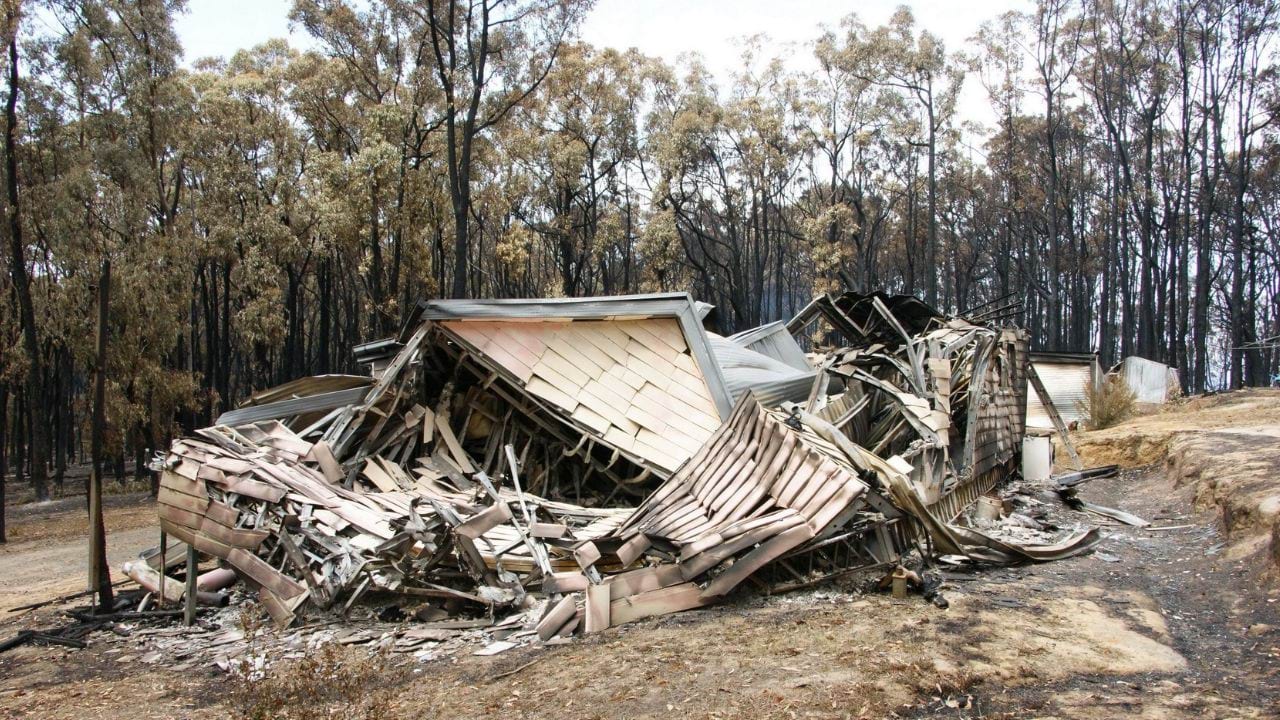Understanding your coverage means knowing exactly what your insurance includes and excludes, so you can be confident you’re properly protected.
Not all policies are the same or include the same amount of cover. It’s important that you review your policy and know what you’re covered for.
Fire cover
Many home insurance policies cover damage caused by fire, including bushfires, but may not include damage which doesn’t involve direct flames, such as damage from heat, smoke or ash. Some policies can have many different exclusions, like:
- Fires less than 72 hours after buying your policy.
- Deliberately lit fires.
- Fires caused by carelessness or ignoring safety rules.
Your insurance policy will say what is and isn’t covered for fire damage.
Storm and flood cover
Flood cover isn’t always included in an insurance policy – it’s a good idea to double-check.
Flooding can happen anywhere, anytime. Even if you don’t live near a waterway, floods may still happen in your area. When considering flood cover, it is important to remember that:
- Flood cover is different from storm cover. Ask your insurer how each is defined. Many home insurance policies cover damage caused by storms. However, many policies do not cover water entering through open windows or doors, or damage caused by pre-existing issues in the home.
- It is important to regularly have general maintenance done on your home to avoid accidentally voiding your insurance policy.
Two types of insurance
- Sum Insured Cover: The maximum amount your insurer has agreed to pay if your home is damaged or destroyed. The amount is usually based on the estimated value of your home and is the maximum amount you can receive from your insurer in the event of a claim.
- Total replacement cover: When your insurer agrees to cover the full cost of repairing or rebuilding your home to its original condition, reducing the risk of underinsurance. This coverage is not always offered and usually comes at a higher cost.
Handy tip
Your insurance policy and Product Disclosure Statement will tell you if you have ‘sum-insured cover’ or ‘total replacement cover’. Contact your insurer to find out more.
Questions to ask your insurer
Part of an insurer’s job is to help policyholders. If you have questions about your policy, contact your insurer and ask them to explain it to you.
Handy tip
Your insurer is there to help you. If you have any questions about your policy, contact them for explanations and assistance.
What to check when renewing your policy
Keeping your cover up to date ensures you are protected if something goes wrong. Set a reminder in your phone or diary to review your policy at the same time every year.
When renewing your insurance policy, remember to ask yourself:
Handy tip
Set a reminder to review your policy each year. Keeping your cover up-to-date helps ensure you’re protected if something goes wrong.
How to get the best deal
Switching insurers is one of the best ways to save money and get a better deal.
Research shows that most Victorian households could save at least 20% on their home insurance premium by shopping around.
Insurance policies can be very different, and it’s important to check each one closely.
Here are some tips to help you choose the right insurer and the right policy:
- Check what the policy covers: Does it cover natural disasters like floods, fires and storms? Are you properly covered if you are in a high-risk area for one or more natural disasters?
- Check inclusions and exclusions: Make sure you know what is and isn’t covered and what you do and don’t need.
- Check the premiums: See what other insurers charge for the same cover.
- Check claim limits: Look at the maximum amount insurers charge for different claim types.
- Consider your excess: Most insurers allow you to adjust your excess. Weigh up the benefit of having a low excess with a higher premium, or a high excess with a lower premium.
- Consider combining policies: Some insurers let you combine your home and contents insurance. This could be cheaper than having two separate policies.
Disclaimer: The information provided on this website is intended for general information purposes only and no reliance should be placed on its contents or accuracy. It is not a definitive guide and is not intended to constitute legal or financial advice and does not take into consideration your particular circumstances or needs. If you require assistance in respect of your personal circumstances, please seek independent advice. In an emergency, please also contact official sources for information. Every effort has been made to ensure the accuracy and completeness of this page and the references to the links included within it. However, we cannot guarantee that the information is complete, current or free from errors. We do not control, endorse or take responsibility for the content of any external websites linked on this page.
Updated

